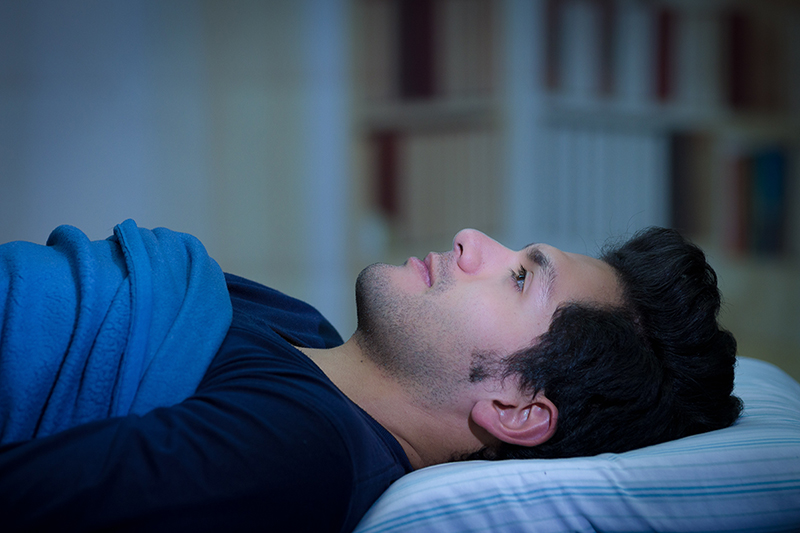What’s Really Keeping You Up at Night?
Trouble sleeping? It’s time to learn what’s really interrupting your quality sleep.

Nobody likes to be interrupted—not during a good movie, not during a phone call, and especially not during sleep! After all, sleep helps your body heal, it gives your mind a break, and it offers you so many great benefits physically and mentally. If you’re going to make it safely out the door tomorrow, then you’re going to need plenty of quality rest tonight.
Generally, healthy adults over the age of 18 should get anywhere from seven to nine hours of sleep per night. But if you’re frequently dozing in and out of sleep, tossing and turning, or constantly checking the clock while trying to sleep, the mere thought of hitting the hay may spike your anxiety.
If these scenarios sound all too familiar, remember that you’re not alone. In fact, it’s been reported that anywhere between 50 and 70 million Americans have a sleep disorder. And getting insufficient sleep can affect your long-term health by:
• increasing anxiety and depression levels
• contributing to weight gain
• increasing your chance of a heart attack or a stroke
• weakening your immune system
To avoid these damaging symptoms of sleep deprivation, it’s time to consider what’s really keeping you up through the night. Here are possible causes and how you might combat these irritating sleep disruptors:
Untreated anxiety and depression
Could there be anything more frustrating than finally settling into bed only to have your mind start racing with intrusive thoughts? If you find yourself waking up frequently with worries, panicked feelings, or just feeling low, you may be experiencing nighttime anxiety.
Solution: To help your body and mind relax before bed, try following a guided meditation online or from a mobile app. Write down tomorrow’s to-do list, journal, take a hot bath, or do some light reading to help clear your mind before getting in bed.
Narcolepsy
You may have narcolepsy if you find yourself battling excessive and frequent daytime sleepiness. Due to this neurological disorder, people who experience narcolepsy are robbed of their regular sleep patterns during the night.
Solution: Consider talking with your doctor or a specialized sleep medicine provider about your possibility of narcolepsy. There are many treatments your doctor can prescribe to help your body get back on the right sleep schedule.
Where you’re sleeping
What’s your sleeping environment like? Are you too cold? Is there too much light in the room? You may even notice your partner is a snorer or a frequent shifter while lying in bed. Whatever the case may be, your bedroom may be the culprit behind why you aren’t sleeping well.
Solution: Find ways to keep your room dark and at a comfortable temperature. Also consider using sound machines or scented oils to help you fall and stay asleep.
Lifestyle
The choices you make while the sun is up will affect how well you sleep while the moon is out. Be mindful of activities or habits that might be hampering your shut-eye, like drinking too much caffeine, excessively looking at screens for long periods of time, listening to loud music, or overworking yourself too close to bedtime.
Solution: Try to discipline yourself with what you eat and drink before bed. Also consider setting an alarm on your phone to remind you to put down electronics at least 30 minutes before bed so your brain has time to unwind. The more you stick to your new routines, the better your sleep pattern will become.
At the end of the day, all you really want is to get plenty of quality sleep free of interruptions. To improve your sleep schedule, consider making small changes in your lifestyle or connect with your healthcare provider for a more in-depth look at why you might be having trouble sleeping.
